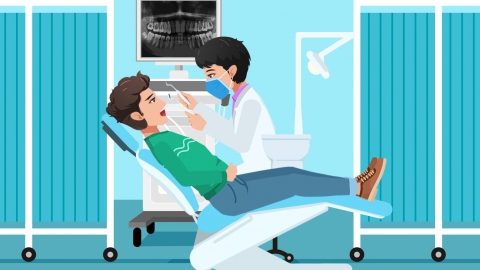How to Handle Chipped Porcelain on a Porcelain-Fused-to-Metal Crown
Porcelain chipping in porcelain-fused-to-metal (PFM) crowns may be caused by prolonged use, material aging, excessive occlusal pressure, tooth wear, or external impact. Generally, this issue can be resolved by replacing the crown, repairing the damage, or implementing appropriate treatment based on the specific cause. If abnormalities occur, timely medical consultation is recommended. Detailed explanations are as follows:

1. Prolonged use: Extended usage of PFM crowns may lead to porcelain chipping due to long-term wear and material aging. In such cases, replacing the crown is recommended to restore dental aesthetics and function.
2. Material aging: The materials used in PFM crowns may gradually age over time, leading to reduced strength and resilience, thereby increasing the risk of porcelain chipping. For crowns affected by material aging, repair options such as reapplication of porcelain or replacement with a new crown can be considered.
3. Excessive occlusal pressure: If the occlusal relationship of the PFM crown is too tight, it may subject the tooth to excessive pressure during chewing, increasing the risk of porcelain chipping and potentially causing tooth pain or occlusal discomfort. Adjusting the occlusal relationship, such as modifying the opposing teeth or fabricating a new crown, is recommended to ensure proper occlusion.
4. Tooth wear: Long-term chewing on hard objects or poor chewing habits may lead to tooth wear, which compromises the stability of the PFM crown and increases the likelihood of porcelain chipping, often accompanied by tooth sensitivity and morphological changes. Worn teeth should be restored through treatments such as dental fillings or fabrication of a new crown to restore normal tooth shape and function.
5. External impact: Porcelain chipping may occur when a PFM crown is subjected to external force or trauma, potentially accompanied by tooth mobility, pain, or bleeding. In such cases, prompt dental consultation is necessary, and treatment involving repair or crown replacement should be performed based on the severity of the damage.
In daily life, it is important to protect PFM crowns by avoiding biting on hard objects and maintaining proper chewing habits. Regular dental check-ups and maintenance are also essential to prolong the lifespan of the crowns.




